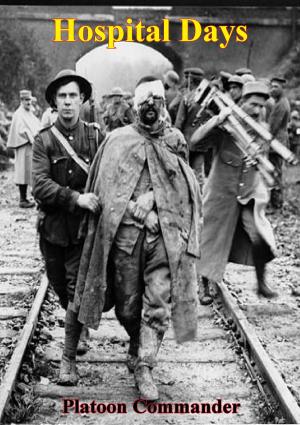'Are We Beasts' Churchill And The Moral Question Of World War II 'Area Bombing'
Nonfiction, History, Germany, European General, Military, United States| Author: | Dr. Christopher C. Harmon | ISBN: | 9781782897293 |
| Publisher: | Lucknow Books | Publication: | August 15, 2014 |
| Imprint: | Lucknow Books | Language: | English |
| Author: | Dr. Christopher C. Harmon |
| ISBN: | 9781782897293 |
| Publisher: | Lucknow Books |
| Publication: | August 15, 2014 |
| Imprint: | Lucknow Books |
| Language: | English |
This historical reassessment of the World War II British bombing campaign notes that though in 1940 Churchill declared that he was waging “a military and not a civilian war” to destroy “military objectives” and not “women and children,” within eighteen months both types of targets would be struck by Bomber Command. The author searches for the reasons in “three contiguous realms” of strategic influence: moral (and legal), political, and military. The study concludes that although for much of the war “area bombing” of cities was a “tragic necessity” meeting the ‘reasonable man’s’ standard of what was decently allowable given the blunt weapons the Allies had” and the evils they faced, nonetheless Allied leaders could have and should have abandoned indiscriminate bombing in the last phases of the conflict, when more precise means were at hand and “Nazi power had been overmatched.”
This historical reassessment of the World War II British bombing campaign notes that though in 1940 Churchill declared that he was waging “a military and not a civilian war” to destroy “military objectives” and not “women and children,” within eighteen months both types of targets would be struck by Bomber Command. The author searches for the reasons in “three contiguous realms” of strategic influence: moral (and legal), political, and military. The study concludes that although for much of the war “area bombing” of cities was a “tragic necessity” meeting the ‘reasonable man’s’ standard of what was decently allowable given the blunt weapons the Allies had” and the evils they faced, nonetheless Allied leaders could have and should have abandoned indiscriminate bombing in the last phases of the conflict, when more precise means were at hand and “Nazi power had been overmatched.”

![Cover of the book Adventures In Propaganda; Letters From An Intelligence Officer In France [Illustrated Edition] by Dr. Christopher C. Harmon](https://www.kuoky.com/images/2013/march/300x300/9781782890652-UHRZ_300x.jpg)
![Cover of the book Small Unit Actions [Illustrated Edition] by Dr. Christopher C. Harmon](https://www.kuoky.com/images/2014/august/300x300/9781782892526-t6wt_300x.jpg)









![Cover of the book 506 Parachute Infantry Regiment In Normandy Drop [Illustrated Edition] by Dr. Christopher C. Harmon](https://www.kuoky.com/images/2014/august/300x300/9781782893523-CRT0_300x.jpg)


